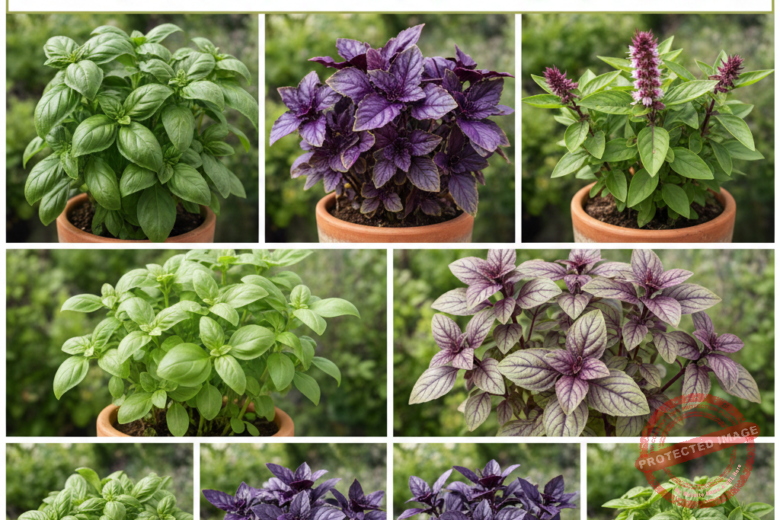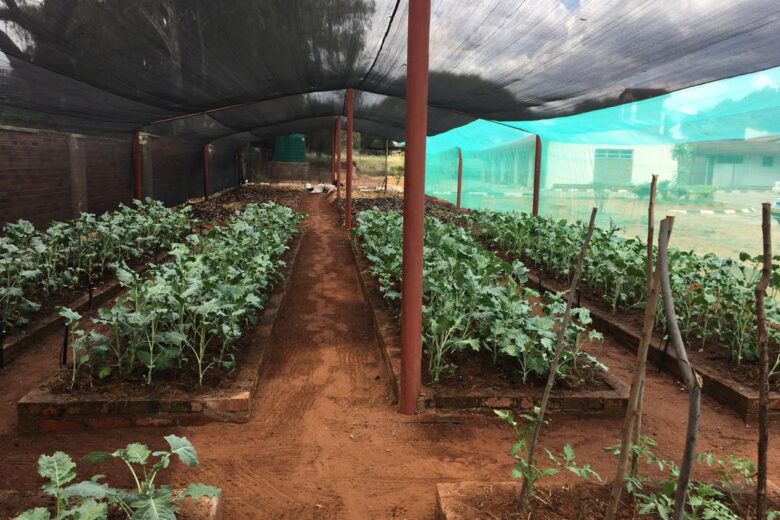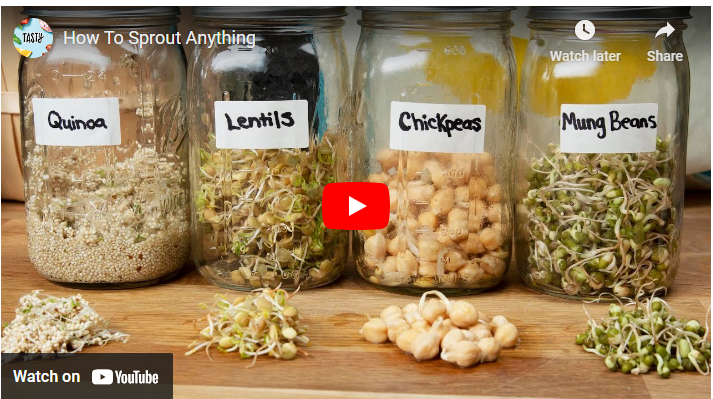In Zimbabwe, agriculture plays a crucial role in the economy, providing livelihoods for a significant portion of the population.
If you’re considering venturing into farming, it’s essential to explore the most profitable crops that can offer you sustainable returns.
This guide highlights the “15 Most Profitable Crops To Grow In Zimbabwe.” From staple crops like maize and wheat to high-value options such as tobacco, cotton, and coffee, this diverse selection encompasses crops with strong market demand and favorable profit margins.
By delving into the cultivation of these profitable crops, you can unlock the potential for economic growth and contribute to Zimbabwe’s agricultural prosperity.
15 Most Profitable Crops to Grow In Zimbabwe
The 15 crops listed below have demonstrated profitability in Zimbabwe, considering factors such as market demand, local conditions, and economic viability.
However, it’s crucial to conduct further research, assess market trends, and consider factors like input costs and farming practices to make informed decisions regarding crop selection for your specific farming venture.
Here are the 15 most profitable crops to grow in Zimbabwe:
- Maize
- Cabbage
- Tobacco
- Cotton
- Soybeans
- Horticultural crops (such as tomatoes, peppers, and onions)
- Coffee
- Sugarcane
- Hemp
- Tea
- Green Beans
- Macadamia nuts
- Beans
- Peanuts (Groundnut)
- Sorghum
#1. Maize
Maize is one of the most profitable crops to grow in Zimbabwe due to its high demand as a staple food.
With proper cultivation techniques and market access, maize farming can offer significant returns for farmers.
#2. Cabbage
Cabbage is a profitable vegetable crop in Zimbabwe, primarily due to its versatility and market demand.
It is widely used in local cuisines and has a good shelf life, making it an attractive choice for farmers looking to maximize their profits.
#3. Tobacco
Tobacco is a cash crop that has been a significant contributor to Zimbabwe’s agricultural sector. With suitable climate conditions and adherence to quality standards, tobacco farming can provide substantial income to farmers.
#4. Cotton
Cotton is another profitable cash crop in Zimbabwe. The country has a long history of cotton production, and farmers can benefit from both domestic and international markets for cotton fiber and related products.
#5. Soybeans
Soybeans have gained popularity as a profitable crop in Zimbabwe due to the increasing demand for soy-based products.
It is used for various purposes, including cooking oil, animal feed, and industrial applications, offering farmers multiple market options.
#6. Horticultural crops (such as tomatoes, peppers, and onions)
Horticultural crops have a high-profit potential in Zimbabwe due to their strong market demand and value-added opportunities.
Tomatoes, peppers, and onions are particularly sought after in local and regional markets, making them profitable crops for farmers who focus on quality and efficient production practices.
#7. Coffee
Coffee production in Zimbabwe has gained momentum in recent years due to favorable climatic conditions and the growing global demand for specialty coffee.
The country’s unique coffee flavors and quality have captured the attention of international buyers, offering farmers a lucrative opportunity to cultivate and profit from coffee farming.
#8. Sugarcane
Sugarcane is a profitable crop in Zimbabwe, especially for farmers with access to irrigation systems.
The demand for sugarcane remains strong, driven by the production of sugar and ethanol.
Large-scale sugarcane farming can provide significant returns, but careful management of inputs and access to processing facilities are crucial for profitability.
#9. Hemp
Hemp cultivation has gained attention in Zimbabwe due to the growing global demand for hemp-based products.
With the legalization of industrial hemp, farmers have the opportunity to cultivate this versatile crop for its fibers, seeds, and extracts.
Hemp farming requires specialized knowledge and compliance with regulations, but it can offer high-profit margins for those who navigate the market effectively.
#10. Tea
Tea farming presents a profitable opportunity for farmers in Zimbabwe, particularly in regions with suitable climatic conditions.
The country’s high-quality black and green teas have a strong international demand.
Developing tea plantations and adopting efficient processing practices can lead to long-term profitability in the tea industry.
#11. Green Beans
Green beans are a profitable crop in Zimbabwe, both for local consumption and export markets.
Their high nutritional value and versatile culinary uses make them a popular choice.
With proper cultivation techniques and access to markets, green bean farming can generate significant income for farmers.
#12. Macadamia nuts
Macadamia nuts have gained popularity as a profitable crop in Zimbabwe due to their high market value.
The country’s favorable climate and suitable soil conditions create an ideal environment for macadamia nut cultivation.
As global demand for these nutritious nuts continues to rise, farmers can benefit from the long-term profitability of macadamia farming.
#13. Beans
Beans are a staple food in Zimbabwe and offer good profitability for farmers. With various bean varieties available, farmers can choose those that are in high demand locally and regionally.
Beans are relatively easy to grow and have a shorter maturity period, enabling farmers to generate income within a reasonable timeframe.
#14. Peanuts (Groundnut)
Peanuts, also known as groundnuts, are a profitable crop in Zimbabwe. They have a wide range of uses, including cooking oil, snacks, and confectionery products. Peanuts are well-suited to the country’s agroecological zones
#15. Sorghum
Sorghum is a profitable crop that is gaining traction in Zimbabwe, especially for its use in brewing traditional and commercial beer.
The demand for sorghum-based beverages is increasing, creating opportunities for farmers to cultivate this drought-tolerant crop and tap into a profitable market.
Cultivation Techniques of Profitable Crops for Small Farms in Zimbabwe
- Proper Land Preparation: Ensure thorough land clearing, removal of weeds, and adequate soil preparation, including soil testing and appropriate nutrient management.
- Crop Selection: Choose crops that are suitable for the specific agroecological zone, considering factors such as climate, soil type, and market demand.
- Planting Techniques: Follow recommended planting practices, including optimal spacing, seed treatment (if applicable), and timely sowing or transplanting.
- Irrigation Management: Implement efficient irrigation methods, such as drip irrigation or sprinkler systems, to ensure proper water supply, especially during dry periods.
- Pest and Disease Control: Implement integrated pest and disease management strategies, including regular monitoring, early detection, and appropriate use of organic or chemical control methods.
Best Practices for Profitable Crops for Small Farms in Zimbabwe
- Crop Rotation: Practice crop rotation to improve soil health, control pests and diseases, and enhance overall productivity.
- Proper Nutrient Management: Apply organic or inorganic fertilizers based on soil test results to ensure adequate nutrient levels for crop growth and yield.
- Weed Management: Implement effective weed control methods, such as manual weeding, mulching, or herbicide application, to minimize competition and optimize crop growth.
- Timely Harvesting: Harvest crops at the appropriate maturity stage to ensure optimum quality and market value.
Risk Management Strategies for Profitable Crops for Small Farms in Zimbabwe
- Diversification: Cultivate a variety of crops to spread the risk and avoid overreliance on a single crop.
- Access to Information: Stay updated on market trends, weather forecasts, and government policies to make informed decisions and mitigate potential risks.
- Crop Insurance: Explore crop insurance options to protect against losses due to adverse weather conditions, pests, diseases, or market fluctuations.
Market Demand of Profitable Crops for Small Farms in Zimbabwe
Research market demand and consumer preferences to identify profitable crop options that have a steady and reliable market.
Consider factors such as local consumption, export opportunities, and value-added products to maximize profitability.
Factors for Successful Planting of Profitable Crops for Small Farms in Zimbabwe
Consider factors such as agroecological conditions, suitable crop varieties, availability of inputs, access to reliable markets, and proper farming techniques.
Factors like timely planting, efficient water management, pest and disease control, and good agronomic practices contribute to successful crop cultivation.
Economic Significance of these Profitable Crops for Small Farms in Zimbabwe
Profitable crops contribute to the economic viability of small farms in Zimbabwe by generating income, providing employment opportunities, improving food security, and contributing to rural development.
They play a crucial role in sustaining livelihoods, supporting local economies, and driving agricultural growth in the country.
Most Profitable Crops to Grow in Zimbabwe
The most profitable crops in Zimbabwe include maize, tobacco, cotton, soybeans, horticultural crops (such as tomatoes, peppers, and onions), coffee, sugarcane, macadamia nuts, beans, peanuts, sorghum, green beans, and more.
These crops have high market demand and offer good profit potential for farmers.
List of Cash Crops in Zimbabwe
Cash crops in Zimbabwe include tobacco, cotton, coffee, macadamia nuts, sugarcane, beans, peanuts, soybeans, and various horticultural crops.
These crops are cultivated primarily for their commercial value and generate significant income for farmers.
Mushroom Farming in Zimbabwe
Mushroom farming is gaining popularity in Zimbabwe due to its high profitability and growing market demand.
Oyster mushrooms are commonly cultivated, and farmers can take advantage of their short growth cycle and low input costs.
Mushroom farming can be done indoors or in controlled environments, making it suitable for small-scale farming operations.
Hemp Farming in Zimbabwe
Hemp farming has gained legal recognition in Zimbabwe, opening up opportunities for farmers.
Hemp is a versatile crop with various uses, including fiber, seeds, and extracts. Farmers interested in hemp farming must comply with regulations and obtain proper licenses.
The profitability of hemp farming depends on factors such as market demand, product diversification, and processing capabilities.
Crops to Grow in Winter in Zimbabwe
Winter in Zimbabwe presents challenges for crop production due to lower temperatures and reduced rainfall.
However, some crops that can be grown during this period include cool-season vegetables like cabbage, kale, spinach, and carrots.
Farmers can also focus on cover crops and green manure crops to improve soil fertility during the winter months.
Zimbabwe Vegetable Planting Calendar
A vegetable planting calendar for Zimbabwe can provide guidance on the appropriate timing for planting various vegetable crops throughout the year.
You can find resources online or consult with local agricultural extension services for a comprehensive planting calendar suitable for your specific region in Zimbabwe.
Horticultural Crops in Zimbabwe
Zimbabwe has a diverse range of horticultural crops cultivated for commercial purposes, including tomatoes, peppers, onions, carrots, lettuce, cucumbers, and more.
These crops have high market demand and offer good profit potential for farmers. While I don’t have a specific PDF, you may find resources online or consult with local agricultural organizations for detailed information on horticultural crops in Zimbabwe.
Conclusion
Embracing the cultivation of the most profitable crops in Zimbabwe opens doors to economic prosperity and sustainable agricultural practices. Whether you opt for staple crops or high-value alternatives, this diverse selection offers ample opportunities to thrive in the agricultural sector. Harness the potential of these crops and contribute to Zimbabwe’s agricultural success story.



